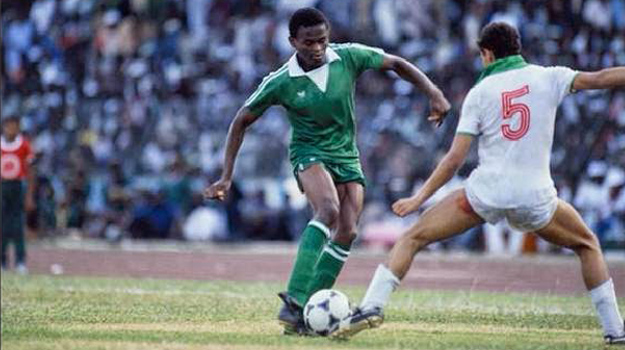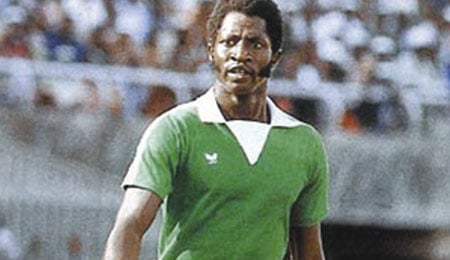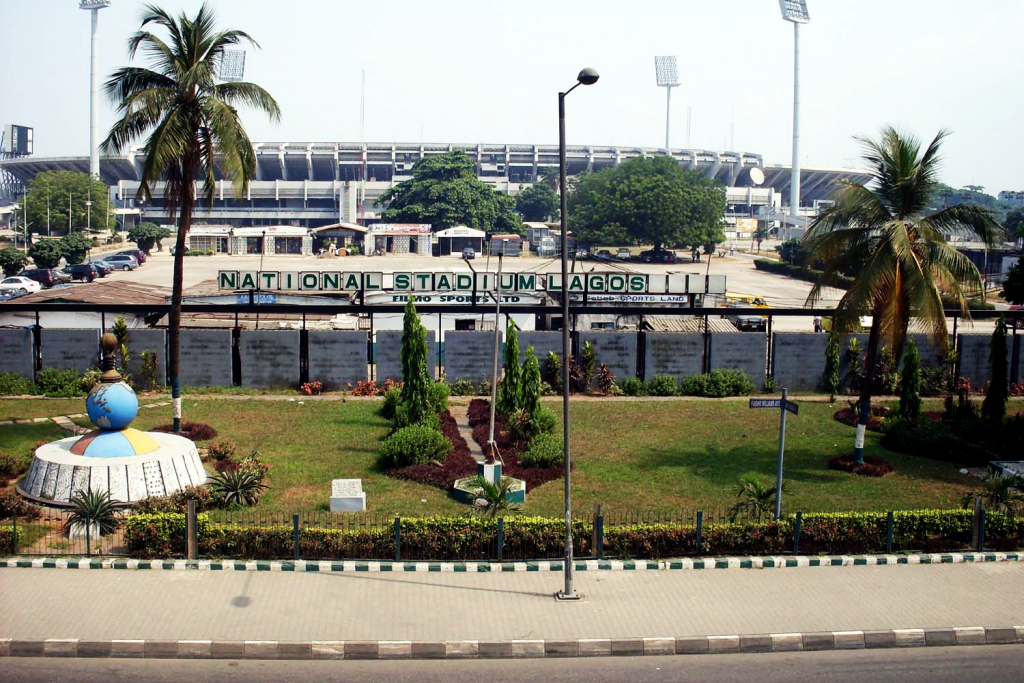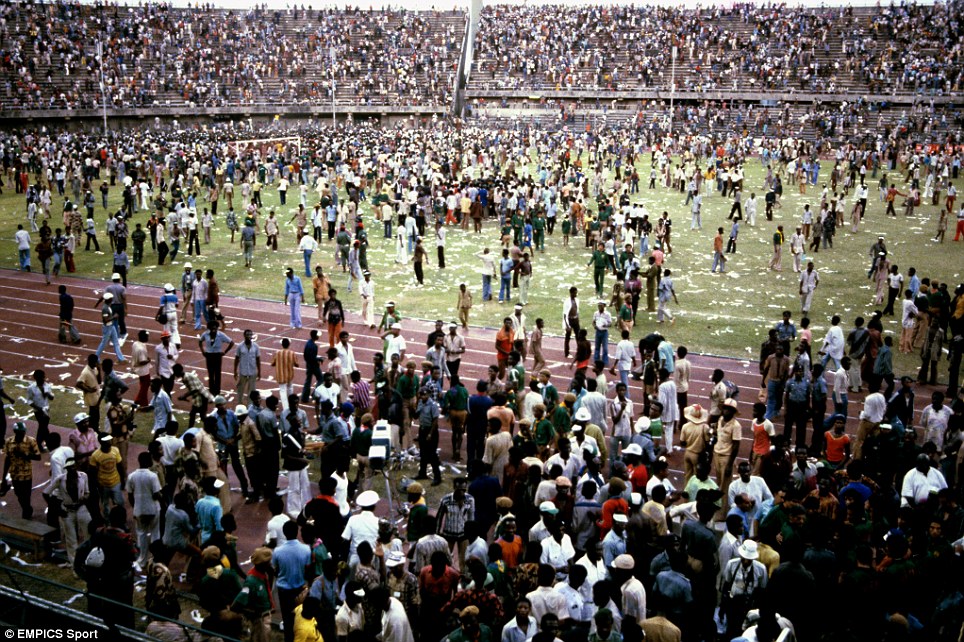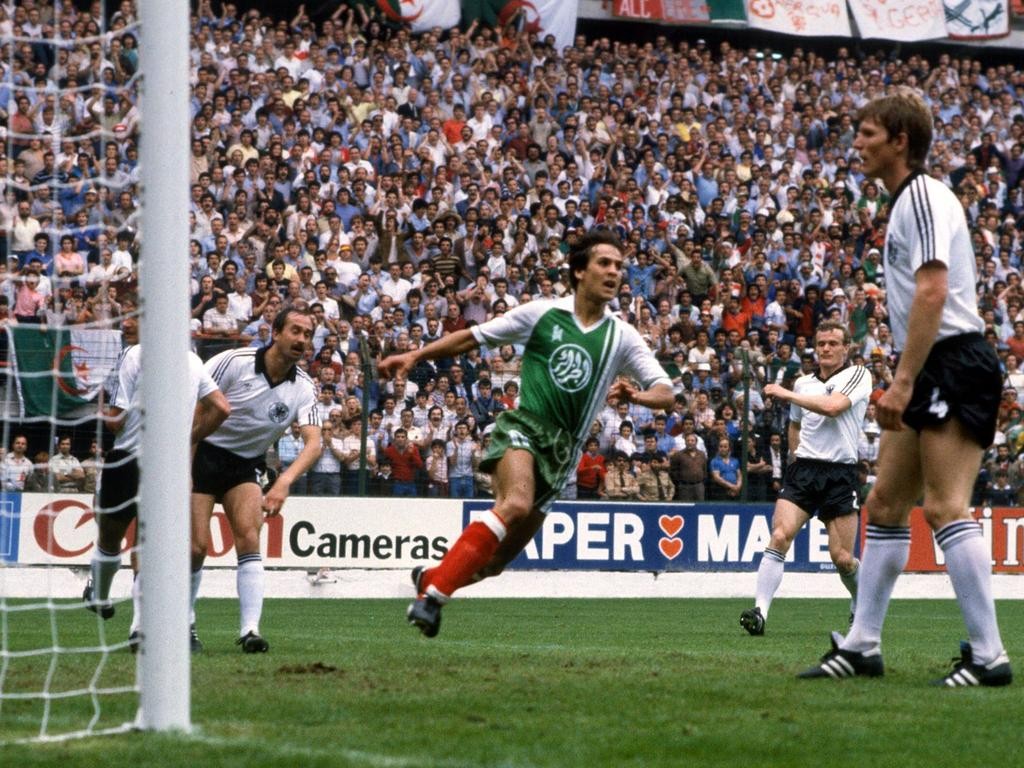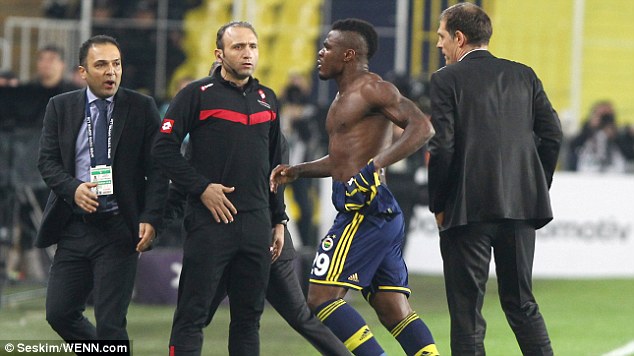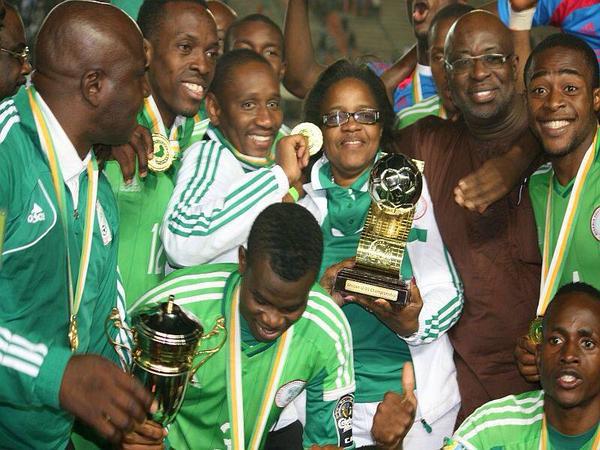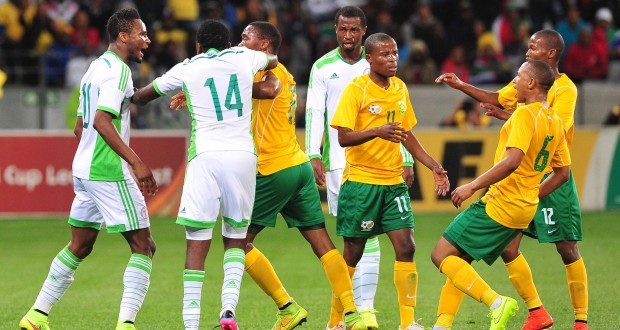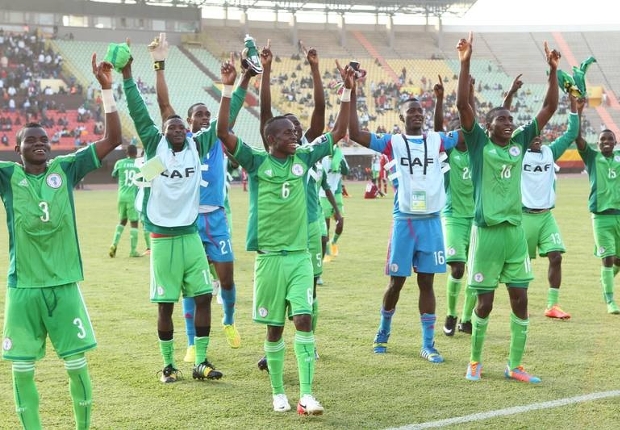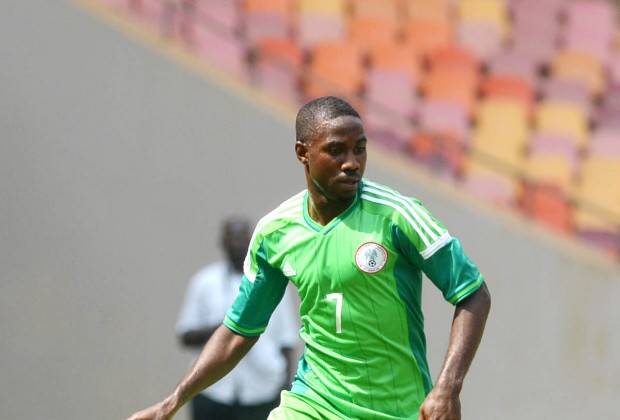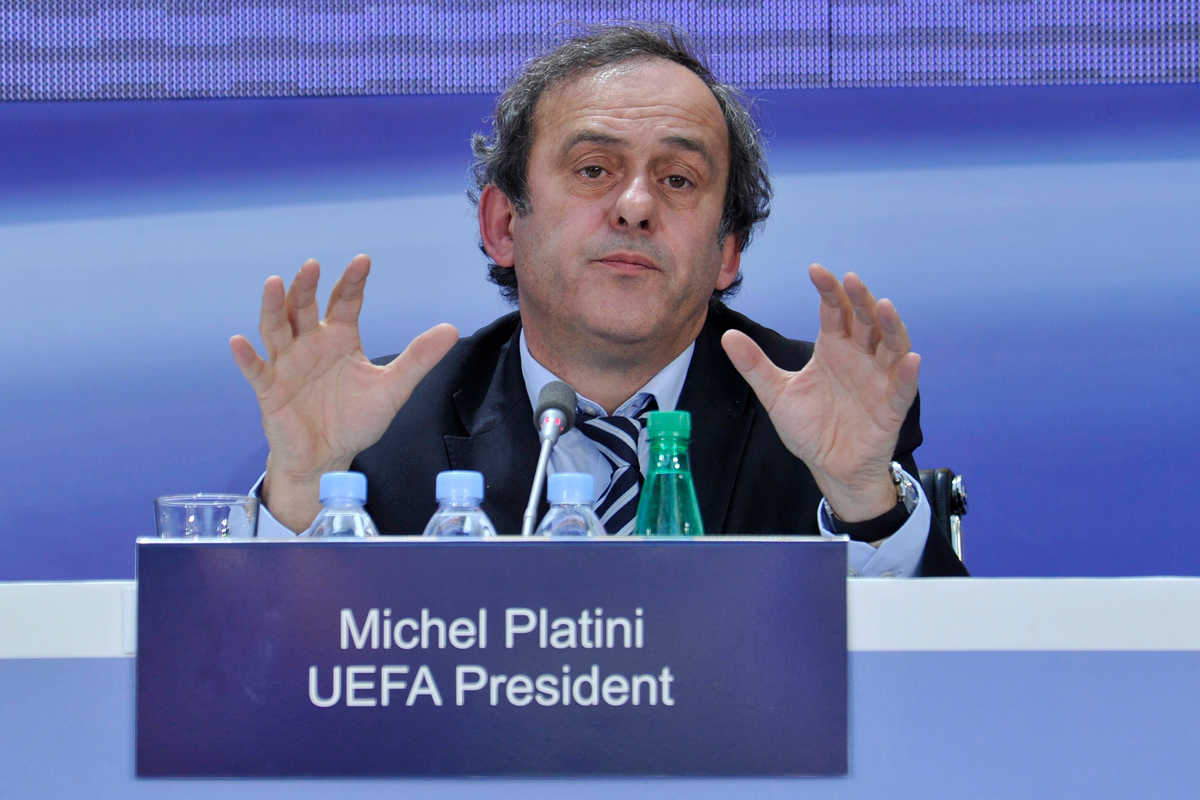This day, 35-years ago, the Green Eagles won the country’s first African Nations Cup at the National Stadium, Surulere.
Nigeria had earlier won a “minor” trophy – the soccer gold medal at the 1973 All-Africa Games at the same venue – but the triumph seven years later remains the first and most memorable achievement of the senior national team.
We bring you five lessons we learned from that victory that are still relevant today.
NOTHING BEATS SOUND PREPARATION
Advertisement
The preparation for the 1980 Nations Cup started four years to the commencement of the competition.
During that time, the team trained and travelled to the nook and crevice of the world. Between the 1976 Nations Cup to the one the country hosted four years later, the Green Eagles visited several countries in Africa, Asia, Europe and the Americas training and playing friendly matches that stood them in good stead ahead of the 1976 Nations Cup, the 1976 Olympics (which the country later withdrew from), the 1978 All-Africa Games in Algeria, the Nations Cup in Ghana and eventually, the 1980 Nations Cup.
No cost was spared as the team camped in Hennef in West Germany which was arguably the best camping site in Europe as at that time. The team then moved to Bulgaria and Yugoslavia. The trips not only exposed the players to the latest and best sporting facilities in the world but taught them lessons in inferiority complex!
Advertisement
Picture Zaire in the 1974 World Cup and what you see is a team heavily laden with complex issues. That’s exactly what the Green Eagles fought with while on tour. Blacks were viewed in lesser light and the only national team that accepted to play the Green Eagles was Bulgaria (the same country 14 years later Rashidi Yekini and his teammates taught the art of playing the game after a 3-0 whitewash – no pun intended – at USA ’94 World Cup) who accepted to condescend and play a team from Africa.
Nigeria lost the game 2-1 but showed they were no monkeys!
At the eve of the Olympics, the Green Eagles went to Canada where they were involved in two friendly games. Nigeria beat Canada, the eventual quarterfinalist at the Olympics, in their first game. It was a major psychological boost comparable to what African fighters drafted to World War I felt when they saw the Whiteman fall from a shot from their guns!
Advertisement
They couldn’t play their second friendly match because the Brazilian Olympic team was at the stand when the Green Eagles taught the Canadians Football 101 lessons. The almighty Brazil chickened out!
Nigeria eventually boycotted the Olympics, but the team was “compensated” with a three-week training tour of China.
Preparation for the 1980 Nations Cup proper involved a three-month comprehensive training camp in Brazil – the world’s football capital. What the team learnt in those three months changed their perspective of the game.
“The level of football and the quality of players that we saw humbled us and made us work doubly hard to catch up,” Segun Odegbami, the joint top-scorer of the 1980 Nations Cup with three goals, said.
Advertisement
“I realised for the first time the gulf that existed between football in South America and the rest of the world especially in Africa. We had rare opportunity to study the Brazilians closely, to watch their training methods, to play against many of their teams, and to watch many of their league matches.
“Many of us that went to Brazil came back to Nigeria totally different people. Brazil was a football education for me.”
Advertisement
Tanzania, Ivory Coast, Egypt, Morocco and Algeria got a dose of that education at the Nations Cup!
TEAMWORK WINS
Advertisement
The 1980 winning team had a Blockbuster, a Mathematical, a Chairman, and a Chief Justice but no individual, not even Aloysius Atuegbu, Segun Odegbami, Christian Chukwu or Adokiye Amiesimaka could make the team be referred to as – like the 1986 Argentine World Cup winning team called Maradona and the 10 robots – Odegbami and the 10 robots? Banish the thought from your mind!
Advertisement
Here was a team that took four years to build; a team made wholly of home-based players except Godwin Odiye then playing for the San Francisco Dons in the United States. The friendship among the players built over those years paid off when the competition commenced; the friendship that couldn’t be broken by the fierce rivalry between IICC Shooting Stars and Enugu Rangers – two teams that had majority of their players in the national team.
Goal scoring responsibility was evenly spread in the team as five players – Muda Lawal, Ifeanyi Onyeadika, Odegbami, Okey Isima, and Felix Owolabi – bagged the eight goals the team scored in the five games in Lagos.
In the final against Algeria, who were clear favourites, the Green Eagles played like a house on fire and consumed the North African team. Two goals in the 2nd and 42nd minutes by Odegbami gave the team a “shock” lead in the first half.
Midfielder maestro Muda Lawal, playing as a striker, put the icing on the cake in the 50th minute to seal a historic win for a team who played with great confidence and gait – like the Brazilians!
HOST WITH THE MOST
1980 Africa Cup of Nations remains the first and only time Nigeria has hosted and won a major football-only tournament.
The word “major” is deliberately used so that a soccer aficionado won’t point to the ECOWAS Cup triumph in 1991. Also, the word “football-only” was used so that the same “football mobile encyclopaedia” won’t bring up the 2-0 win against Guinea in the final of the 1973 All-Africa Games in Lagos.
The list of “hosting-to-lose” by Nigeria is not long and endless but fans were rendered speechless at the 1995 Africa Youth Championship where the Flying Eagles could only “wobble and fumble” to a third place finish after losing to Cameroon 2-1 in the semifinal in Kaduna.
Nigeria hosted the 1999 FIFA World Youth Championship, but the same Flying Eagles wasted the opportunity of “hosting-to-win” as they lost 3-1 to Mali in the quarter final played in Enugu.
Nigerians smelt a repeat of the feat achieved in 1980 as the country co-hosted the African Cup of Nations with Ghana in 2000.
The Super Eagles led by Sunday Oliseh got to the final at the scene of the triumph 20 years earlier but Patrick Mboma and co. didn’t read the script like Algeria in 1980. They won via penalty-shootout and Oliseh led the crying party!
Amos Adamu and COJA could not “cajole” Cameroon (AGAIN) in 2003 as they beat Nigeria 2-0 in the final of the All-Africa Games in Abuja.
The most recent heartache was in 2009 at the FIFA U-17 championship where the Golden Eaglets won the silver medal after losing 1-0 to Switzerland in the final in Abuja.
Being the host doesn’t guarantee you the most (trophy) so, let’s drum it into your ears – not for the last time though.
“In the presence of the president of the country, Shehu Shagari and an audience of 100, 000 Nigerians packed in the 60, 000 capacity National Stadium in Surulere, the Green Eagles blew Algeria away by 3-0.”
But it’s better in words than figure.
“In the presence of the president of the country, Shehu Shagari and an audience of hundred thousand Nigerians packed in the sixty thousand-capacity National Stadium in Surulere, the Green Eagles blew Algeria away by three goals to nothing!”
PROMISE KEPT
After the triumph, the federal government promised to show “appreciation” to the players and coaching crew. The Shagari-led government duly fulfilled their promise showering the team with a national honour, a house in FESTAC Town, and a car.
Unfulfilled promises by the government always come up as part of the problems bedevilling the growth and development of sports in Nigeria. From the Flying Eagles team that first represented the country in a FIFA tournament in 1983 to the victorious Super Eagles team that equalled the feat of the Chukwu’s set winning the Nations Cup in 1994 in Tunisia, lamentations is always a favourite tune.
Chief Zebrudaya Okoroigwe Nwogbo alias 4:30, one of Nigeria greatest comedians, was said to have asked for “EY” be added to MON when he was bestowed a Member Of the Niger, but the 1980 set of the Green Eagles can’t complain.
“I am half-sitting, half-lying in my bed in Festac Town, Lagos in my little N75, 000 flat bequeathed to me by the government of Alhaji Shehu Shagari in 1980 as a reward for the little part I played in winning the African Cup of Nations for Nigeria,” Odegbami said during the 25th anniversary of the victory in Surulere.
But for other players that brought glory to the country, they are half-sitting and half-lying in penury – some even in their graves –asking for their own “MON” complemented with a “EY”!
1980 TRIUMPH, A FLUKE?
One can safely say that the Green Eagles didn’t consolidate their position in Africa and World soccer after winning the African Nations Cup in 1980.
The first competition the majority of the 1980 set played was the Summer Olympics in USSR.
Nigeria couldn’t go beyond the group stage after losing to Kuwait 3-1 in their first game. They pulled a 1-1 draw with Czechoslovakia in their second game with Henry Nwosu scoring an 84th minute equaliser. The team needed a win in their last group game to advance to the quarter finals but lost 1-0 to Colombia at the Dinamo Stadium in Moscow.
Algeria, the team they defeated barely four months earlier got to the quarter finals of the tournament qualifying in second place in a group that had East Germany, Spain and Syria.
As the defending champions in the 1982 edition of the African Cup of Nations in Libya, the Green Eagles couldn’t go past the group stage.
They even lost to Algeria 2-1 in their second game after beating Ethiopia 3-0 in their first match. They lost by the same margin to Zambia in their last match.
Before then, Algeria had eliminated Nigeria from the 1982 World Cup beating the Green Eagles home (2-0) and away (2-1).
It now begs the question: was the triumph in Surulere a fluke? Were the Algerians overwhelmed by the vociferous fans of the Green Eagles? Did Lady Luck take sides with the Eagles?
“In the end, hard work, good luck, the people’s support, our government’s commitment, paid off,” Odegbami said.
“I can still play back in my mind almost every minute of the final match – the blaring trumpet of late Zeal Onyia marshalling Nigerians to the great battle, the vociferous singing 100, 000 Nigerians at the stadium, and the rampaging supercharged Green Eagles.
“It was a day when the elements had no choice but to side with the Eagles, and to provide Nigerians with a cause to truly celebrate.”
End of discussion!
